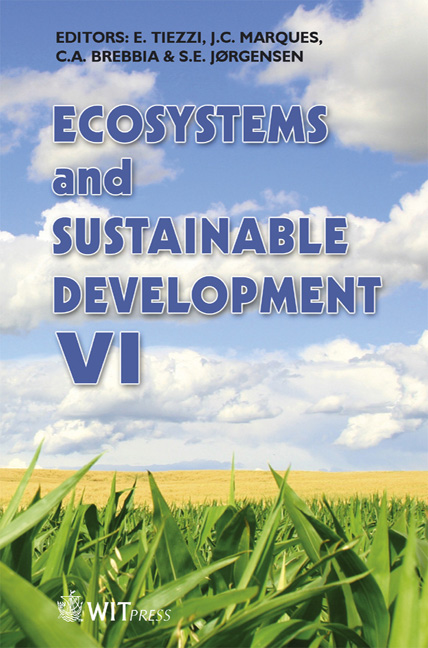Mathematical Modelling Applied To Ecosystems: The Gödel’s Theorem
Price
Free (open access)
Transaction
Volume
106
Pages
5
Published
2007
Size
249 kb
Paper DOI
10.2495/ECO070061
Copyright
WIT Press
Author(s)
E. B. P. Tiezzi, R. M. Pulselli & E. Tiezzi
Abstract
In the framework of evolutionary physics, we must deal with goal functions instead of state functions: ecodynamic models must be based on relations evolving in time; far-from-equilibrium thermodynamics (Prigogine) is the foundation for a new description of nature. But if energy and mass are intrinsically conservative and entropy is intrinsically evolutionary, how can entropy be calculated on the basis of energy and mass quantities (entropy paradox)? This question is still unanswered and all we can do is note that the ecodynamic viewpoint is different from that of classical physics and classical ecology. This paper is an attempt to deal with these concepts. 1 Introduction Recently some studies in mathematical logic have examined the possibility of getting computers to understand the concept of the passage of time. Indeed, the study of real-time systems, in other words systems in which temporal evolution plays a primary role, has made interesting advances. Specifically, the properties to describe in these systems are not only qualitative, properties which classical temporal logic can express, but also quantitative. It would be interesting to develop logics that express \“eternal” constraints, such as the three dimensions, on one hand, and that tackle the real meaning of evolution, and hence the importance of events and their successions, on the other. Nature is evolutionary in character. The more one seeks to comprehend her, in the etymological sense of enclosing, imprisoning, in our mental schemes, the more she creates relations and complexity, memories and creative possibilities. It
Keywords





